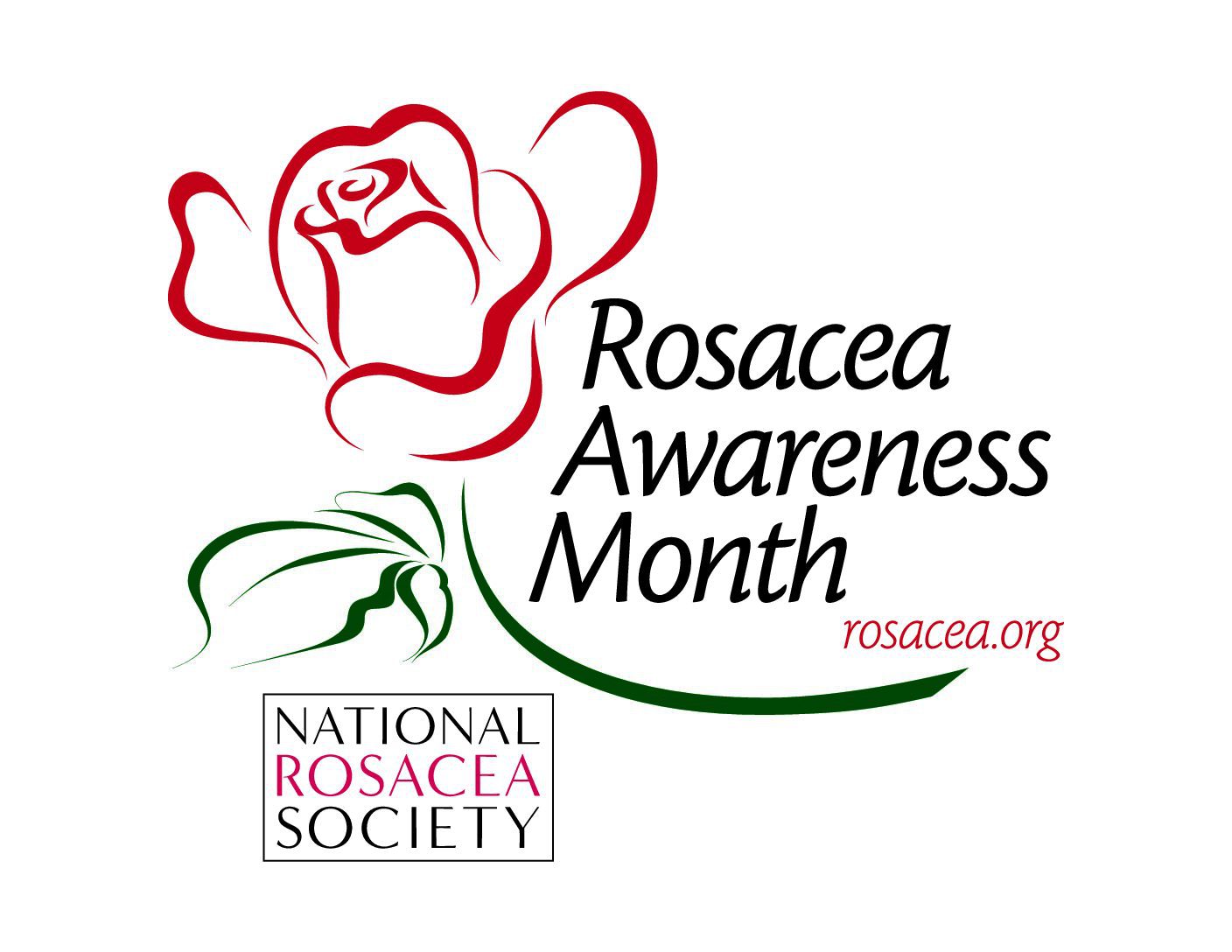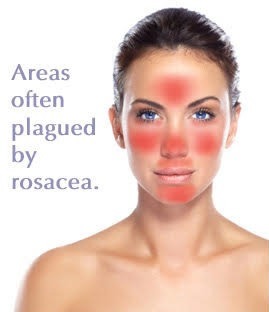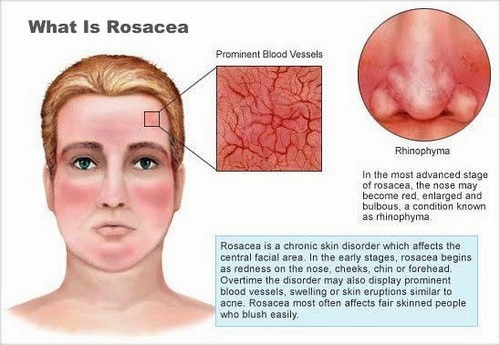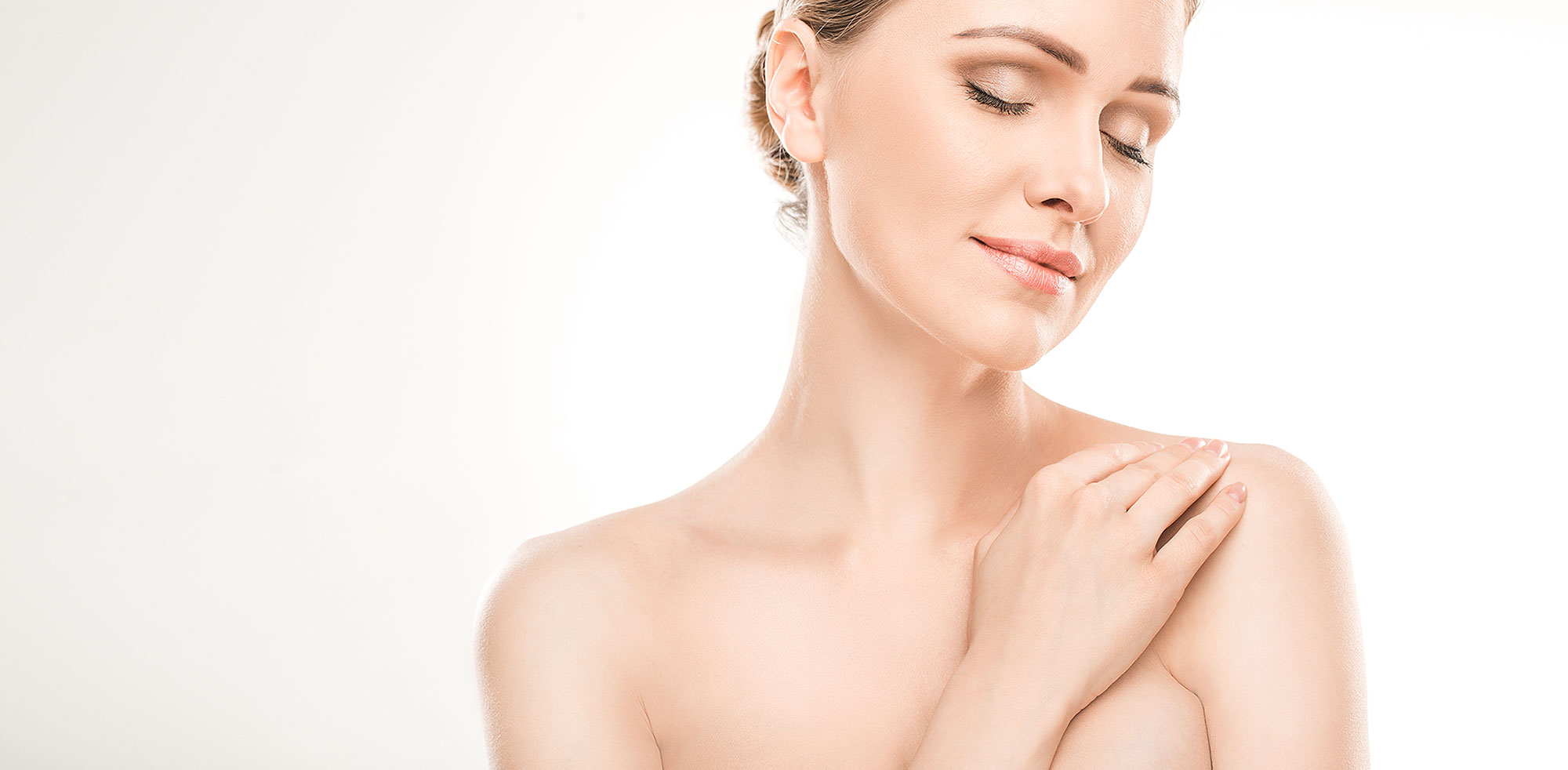
21 March Interesting Facts on Rosacea
 The National Rosacea Society (NRS) has designated April as Rosacea Awareness Month to educate the public on the treatments available for this chronic facial skin disorder, as well as the importance of a key factor in making them effective: giving new treatments enough time to work.
The National Rosacea Society (NRS) has designated April as Rosacea Awareness Month to educate the public on the treatments available for this chronic facial skin disorder, as well as the importance of a key factor in making them effective: giving new treatments enough time to work.
What is Rosacea?
Rosacea is a common condition that is poorly understood that mainly affects the face. Symptoms often begin with flushing but other symptoms can develop as the condition progresses such as burning and stinging sensations, permanent redness, spots (papules and pustules) and small blood vessels that become more visible. There can also be raised red patches (plaques) on the skin.
Persistent facial redness, known as erythema is like a blush that does not go away and if often mistaken for someone who drinks heavily. The redness usually affects the cheeks, nose and chin but can also spread to other areas such as the forehead, neck and chest.
Rosacea is a cyclic condition so there are periods when the symptoms subside. It can also be linked to the menstrual cycle. Many of the symptoms of rosacea can be controlled to a degree with treatment. Unfortunately changes to physical appearance can have a significant psychological and social impact making on the sufferers.
The exact of rosacea is unknown. Several triggers have been identified that make rosacea worse. These include: sunlight exposure, stress, strenuous exercise, not/cold weather, hot drinks, alcohol and caffeine. Spicy foods can also trigger an attack. Rosacea appears to be quite common and more frequent in women than men. First diagnoses tend be in the 30-50 age bracket.
Up to 1 in 10 people may have it. It commonly affects white Caucasians but can also occur in Asians and African origin skins.
How to cure Rosacea?
There is currently no cure available for this condition but treatment can help symptoms.

Long term treatment is necessary although there will be periods when your symptoms will improve. For most people, treatment will involve a combination of self help measures and medication such as avoiding known triggers e.g. alcohol, spicy foods and caffeine.
Creams and gels that can help when directly applied to the skin. Products containing Vitamin C are known for healing blood capillaries and beneficial to rosacea sufferers.
If Rosacea is associated with spots, then a course of oral antibiotics can help clear them up. In some cases, visible thread veins can be treated with Thermavein. This treatment is aimed at the visible blood vessels causing them to shrink and make them less visible.
We have found that using a correct skincare range that is dedicated for rosacea skins helps enormously as well as having Skin Peels that reduce the redness, soothe the Skin and that are Vitamin C infused. The downside of Rosacea is that there can be the added problem of pigmentation associated with this condition so it is important to have skincare that helps with this.
For more information rosacea & skincare options to manage rosacea click here or call 01202 024060.

